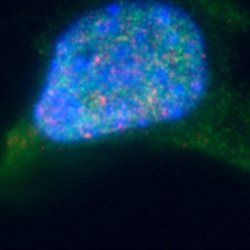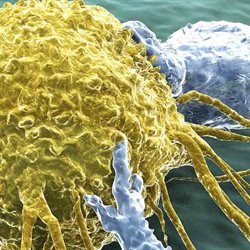Our core scientific focus is on understanding oncogenesis and tumour immunobiology, providing the scientific basis for novel targeted therapies, immunotherapies, and stratification approaches.
 Genomics
Genomics
Aligning with the Department of Cancer and Genomic Sciences, our Genomics theme is defining how DNA damage and repair defects influence cancer predisposition, how epigenetic reprogramming drives tumourigenesis, and, aligning with clinical trials on epigenetic modifiers, highlights new therapeutic opportunities. Linking with our clinical infrastructure genomics studies can identify how mutational profiles/epigenetic signatures influence patient outcomes/treatment response, providing novel stratification approaches

Immunology
Aligning with the Department of Immunology and Immunotherapy, our Immunology theme explores how anti‐tumour immunity is regulated, including the immunobiology of the tumour microenvironment, and how factors such as tumour genetics, oncogenic signalling and microbiota combine to influence it. Linking with these studies, we are characterising novel axes of cancer immunosuppression, new molecular targets and developing innovative immunotherapeutic strategies.

Tumour Microenvironment & Metabolism
Aligning with the Department of Metabolism and Systems Science, this theme aims to increase understanding of the tumour microenvironment (TME), with the ultimate goal of harnessing this to improve our understanding of prognosis, response to treatment, and also to catalyse development of novel therapeutic approaches or treatment combinations. The theme leverages ongoing work from many Centre groups, particularly focussed on three specific areas of local strength: hypoxia and metabolism; microbial infection and its effect on the TME, and specific cellular compartments in the TME.